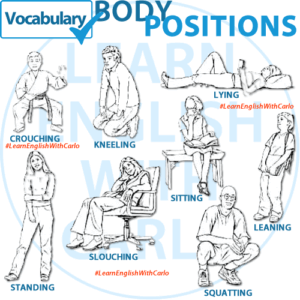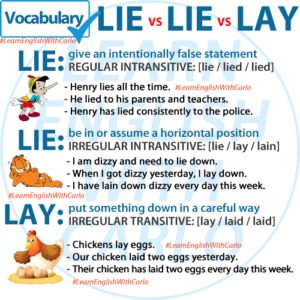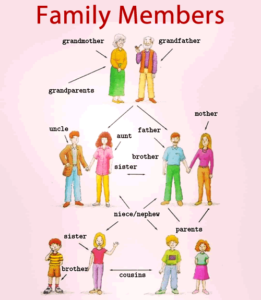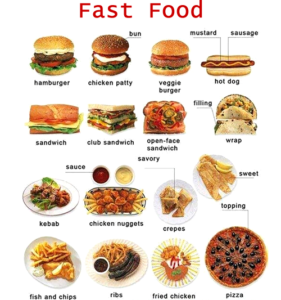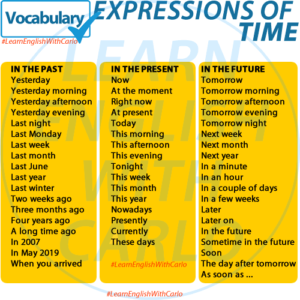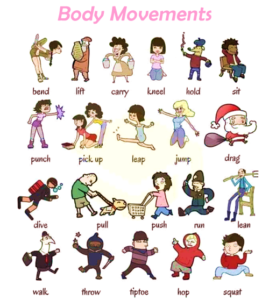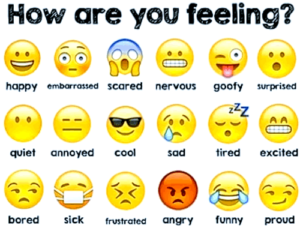We place our bodies in different positions depending on what we are doing. Do you know the names of the different positions? One of my INSTAGRAM followers asked to use each one in a sentence, so here you go: Can you think of any other positions? If you have any questions or doubts, please ask …
Category: VOCABULARY
Permanent link to this article: https://englishyourway.com.br/body-positions-vocabulary/
May 04
Lie vs. Lie vs. Lay: Understanding the Differences
English can be tricky, especially when it comes to words that sound the same but have different meanings and uses. A common source of confusion is the difference between “lie,” “lie,” and “lay.” These three words are often mixed up, but understanding their meanings and how they are used can help you use them correctly. …
Permanent link to this article: https://englishyourway.com.br/lie-vs-lie-vs-lay-understanding-the-differences/
Jan 29
Commonly Confused Words
There are a lot of words in English that look or sound the same but have very different meanings, such as accept and except or affect and effect. Here’s a quick-reference list of pairs of words that sometimes cause people problems. Word 1 Meaning Word 2 Meaning accept agree to receive or do; believe except …
Permanent link to this article: https://englishyourway.com.br/commonly-confused-words-a-comprehensive-list/
Sep 25
VOCABULARY – Family Members
Permanent link to this article: https://englishyourway.com.br/vocabulary-family-members/
Sep 24
VOCABULARY – Fast Food
Popular Fast Food Dishes In addition to burgers and fries, fast food offers a variety of dishes depending on where you are in the world. Some popular fast food items include: Fast Food Vocabulary in Context Here are some common phrases you might hear when ordering fast food: Healthier Fast Food Options Fast food doesn’t …
Permanent link to this article: https://englishyourway.com.br/vocabulary-fast-food/
Sep 05
VOCABULARY – Expressions of Time
Do you know how to use phrases like “in the morning,” “next week,” or “a long time ago”? Expressions of time help you give more details when you’re talking about when things happen. Days/Weeks/Months/Years: Use on for days (“on Monday”), in for months/years (“in July”, “in 2022”), and at for specific times (“at 5 o’clock”). …
Permanent link to this article: https://englishyourway.com.br/vocabulary-expressions-of-time/
Aug 22
VOCABULARY – Body Movements
Permanent link to this article: https://englishyourway.com.br/vocabulary-body-movements/
Aug 04
VOCABULARY – Emojis
If you use social media at all, you should be very familiar with emojis – those cute little digital images or icons used to express an idea, emotion, etc. Here are a few of the emotions that they represent: happy embarrassed scared nervous goofy surpised quiet annoyed cool sad tired excited bored sick frustrated angry funny …
Permanent link to this article: https://englishyourway.com.br/vocabulary-emojis/
Permanent link to this article: https://englishyourway.com.br/whats-the-difference-work-vs-job/
Jun 26
VOCABULARY – Units for counting UNCOUNTABLE nouns
Some nouns are UNCOUNTABLE. That means that they don’t have a plural form and cannot be used with an indefinite article. The most common uncountable nouns are liquids, but there are others too.So, how do we quantify an uncountable noun? We give it a unit! *NOTE: There are time when you can order something in …
Permanent link to this article: https://englishyourway.com.br/vocabulary-units-for-counting-uncountable-nouns/

